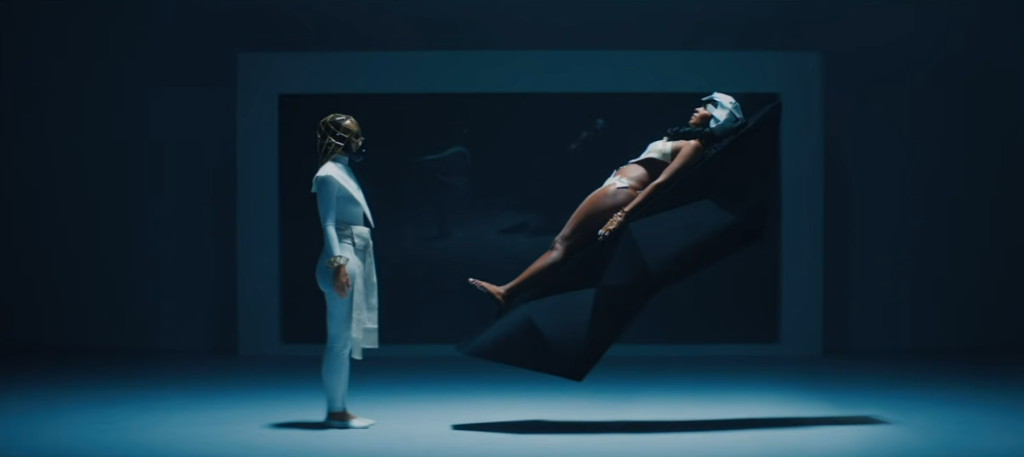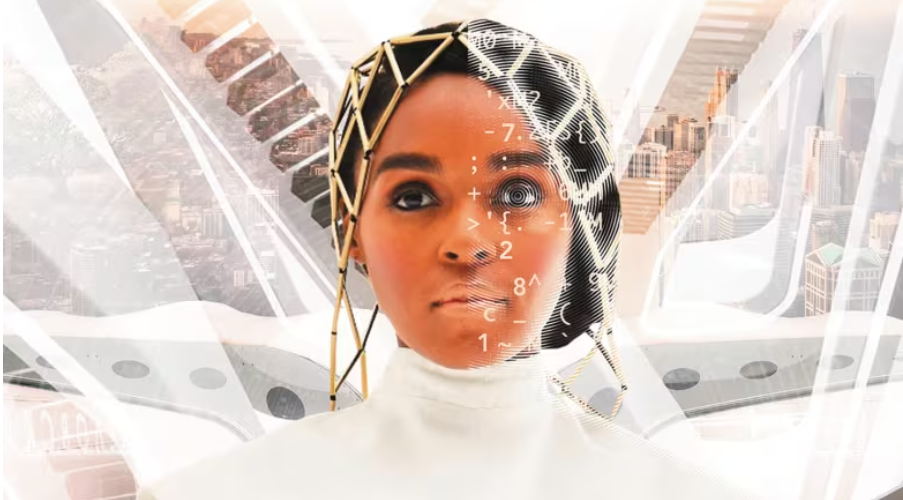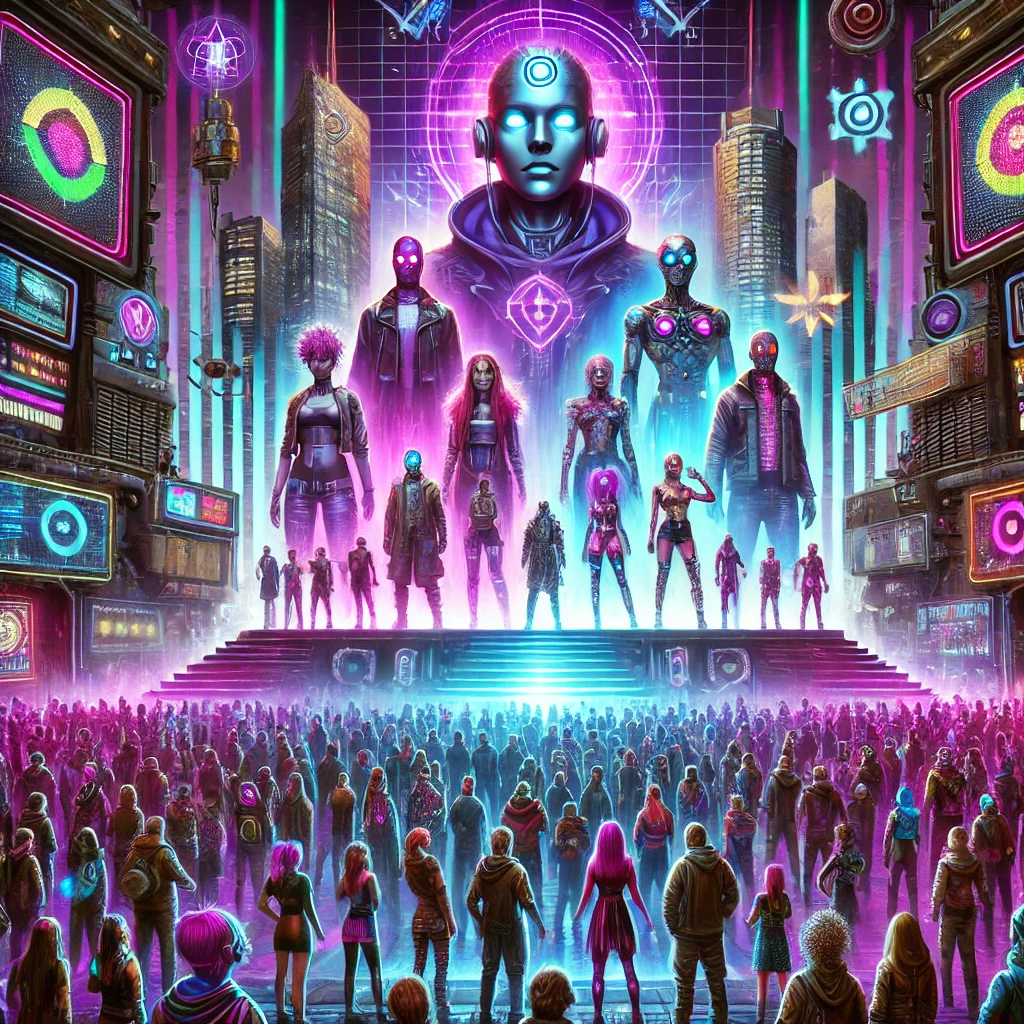Haraway’s essay “Cyborg Manifesto” introduces a vision of a post-gender world where identity is fluid. Fluid identity in the essay encourages the fluidity between gender and humans/machines. Similarly, Janelle Monáes’s album Dirty Computer discusses ideas of fluid identity. Monáe explores how fluidity across gender, race, and sexuality can be both a form of resistance as well as a target for oppression. Haraway’s essay is set in a post-human and post-gender society while Dirty Computer is set in a dystopian society where non-conforming individuals are oppressed. Specifically, gender and sexuality are highlighted throughout the album. While Haraway doesn’t pose those two concepts as central themes, they discuss cyborg resistance in which the oppressed groups must defy social norms to be liberated. Both works emphasize that liberation comes through challenging boundaries and societal norms.
In her album Monáe created characters called “ dirty computers” that represent individuals who defy societal norms whether it be race,gender,or sexuality. These characters must resist their oppressor to keep their unique differences. In contrast, Haraway depicts a world where the boundaries of those intersectionalities are already being challenged.Both the album and the essay introduce visions of cyborg resistance that encourage identity fluidity.These multifaceted works illustrate how resistance is how you battle oppression. The marginalized groups would remain marginalized without resistance and would therefore perpetuate dystopian societies.Although these works have different settings and character types,they have overlapping themes.
Given that Monáe is an African American queer artist, this album is probably a representation of her story. Sexuality is and has always been a debate that puts non-conforming people in a group that subjects them to oppression. African Americans are also historically marginalized and oppressed. Monáe used this album to express her personal struggles in a way that includes African Americans and queer people in the cyberpunk genre.



